第33章
And here I will digress a moment to make a single remark on a subject of which popular feeling, in America, under the influence of popular habits, is apt to take an exparte view. Accomplishments are derided as useless, in comparison with what is considered household virtues. The accomplishment of a cook is to make good dishes; of a seamstress to sew well, and of a lady to possess refined tastes, a cultivated mind, and agreeable and intellectual habits. The real VIRTUES of all are the same, though subject to laws peculiar to their station; but it is a very different thing when we come to the mere accomplishments. To deride all the refined attainments of human skill denotes ignorance of the means of human happiness, nor is it any evidence of acquaintance with the intricate machinery of social greatness and a lofty civilization. These gradations in attainments are inseparable from civilized society, and if the skill of the ingenious and laborious is indispensable to a solid foundation, without the tastes and habits of the refined and cultivated, it never can be graceful or pleasing.
{exparte = should be "ex parte"--one-sided (Latin)}
Eudosia had some indistinct glimmerings of this fact, though it was not often that she came to sound and discriminating decisions even in matters less complicated. In the present instance she saw this truth only by halves, and that, too, in its most commonplace aspect, as will appear by the remark she made on the occasion.
"Then, Clara, as to the PRICE I have paid for this handkerchief," she said, "you ought to remember what the laws of political economy lay down on such subjects. I suppose your Pa makes you study political economy, my dear?""Indeed he does not. I hardly know what it means.""Well, that is singular; for Pa says, in this age of the world, it is the only way to be rich. Now, it is by means of a trade in lots, and political economy, generally, that he has succeeded so wonderfully; for, to own the truth to you, Clara, Pa hasn't always been rich.""No?" answered Clara, with a half-suppressed smile, she knowing the fact already perfectly well.
"Oh, no--far from it--but we don't speak of this publicly, it being a sort of disgrace in New York, you know, not to be thought worth at least half a million. I dare say your Pa is worth as much as that?""I have not the least idea he is worth a fourth of it, though I do not pretend to know. To me half a million of dollars seems a great deal of money, and I know my father considers himself poor--poor, at least, for one of his station. But what were you about to say of political economy? I am curious to hear how THAT can have any thing to do with your handkerchief.""Why, my dear, in this manner. You know a distribution of labor is the source of all civilization--that trade is an exchange of equivalents--that custom-houses fetter these equivalents--that nothing which is fettered is free--""My dear Eudosia, what IS your tongue running on?""You will not deny, Clara, that any thing which is fettered is not free?
And that freedom is the greatest blessing of this happy country; and that trade ought to be as free as any thing else?"All this was gibberish to Clara Caverly, who understood the phrases, notwithstanding, quite as well as the friend who was using them. Political economy is especially a science of terms; and free trade, as a branch of it is called, is just the portion of it which is indebted to them the most.
But Clara had not patience to hear any more of the unintelligible jargon which has got possession of the world to-day, much as Mr. Pitt's celebrated sinking-fund scheme for paying off the national debt of Great Britain did, half a century since, and under very much the same influences; and she desired her friend to come at once to the point, as connected with the pocket-handkerchief.
{Mr. Pitt's celebrated sinking-fund = Sir William Pitt "the younger"(1759-1806), when he became Prime Minister in 1784, sought to raise taxes in order to pay off the British national debt}
"Well, then," resumed Eudosia, "it is connected in this way. The luxuries of the rich give employment to the poor, and cause money to circulate.
Now this handkerchief of mine, no doubt, has given employment to some poor French girl for four or five months, and, of course, food and raiment. She has earned, no doubt, fifty of the hundred dollars I have paid. Then the custom-house--ah, Clara, if it were not for that vile custom-house, I might have had the handkerchief for at least five-and-twenty dollars lower----!"
"In which case you would have prized it five-and-twenty times less,"answered Clara, smiling archly.
"THAT is true; yes, free trade, after all, does NOT apply to pocket-handkerchiefs."
"And yet," interrupted Clara, laughing, "if one can believe what one reads, it applies to hackney-coaches, ferry-boats, doctors, lawyers, and even the clergy. My father says it is----""What? I am curious to know, Clara, what as plain speaking a man as Mr. Caverly calls it.""He is plain speaking enough to call it a ----- HUMBUG," said the daughter, endeavoring to mouth the word in a theatrical manner. "But, as Othello says, the handkerchief."{Othello says... = "Fetch me the handkerchief," Shakespeare, "Othello,"Act III, Scene 4, line 98}